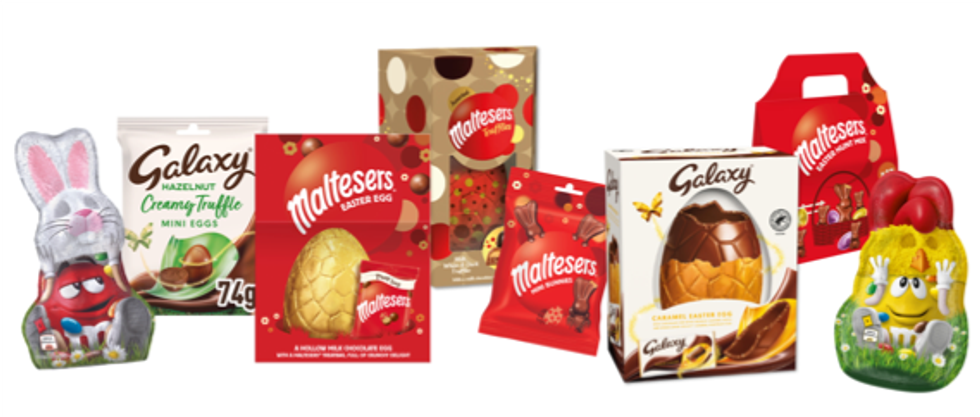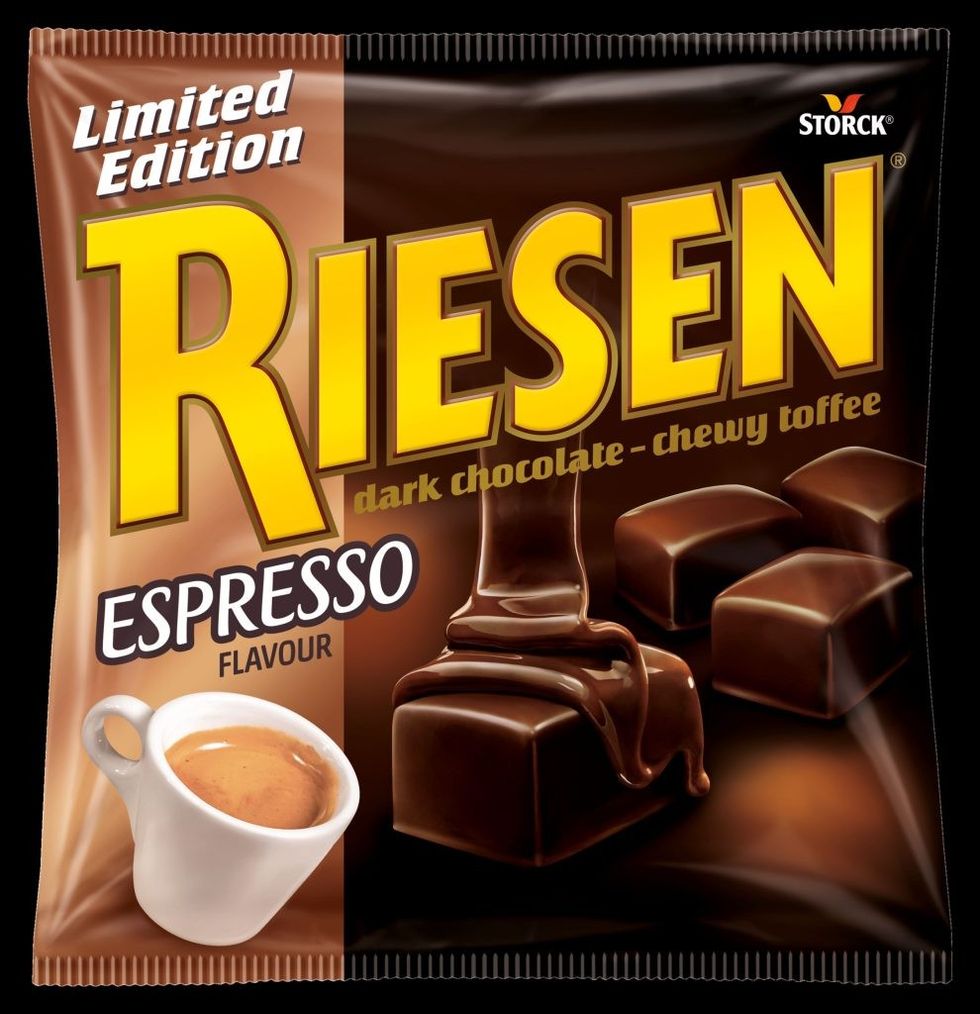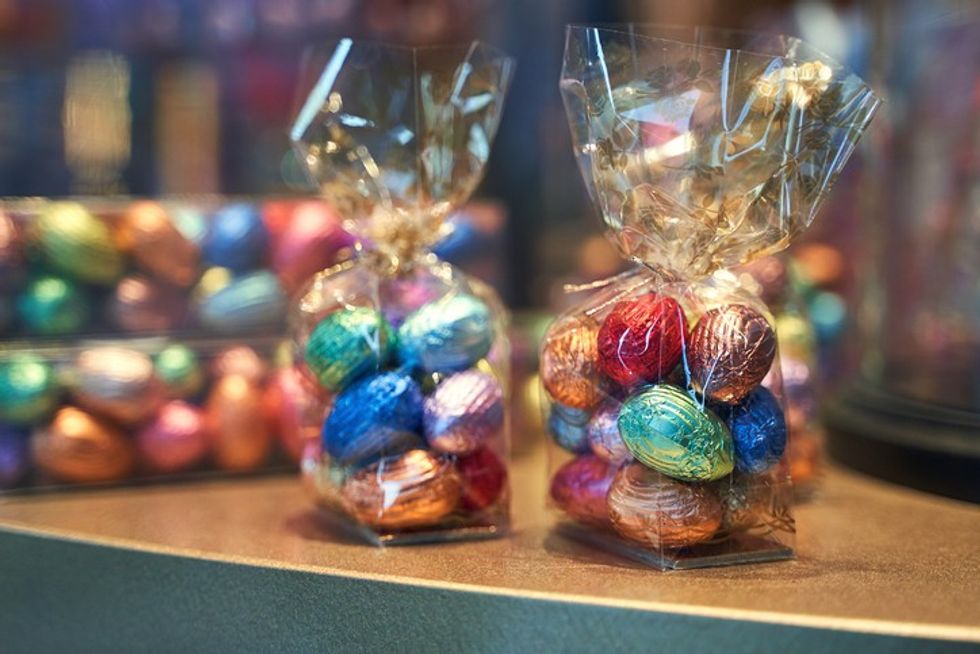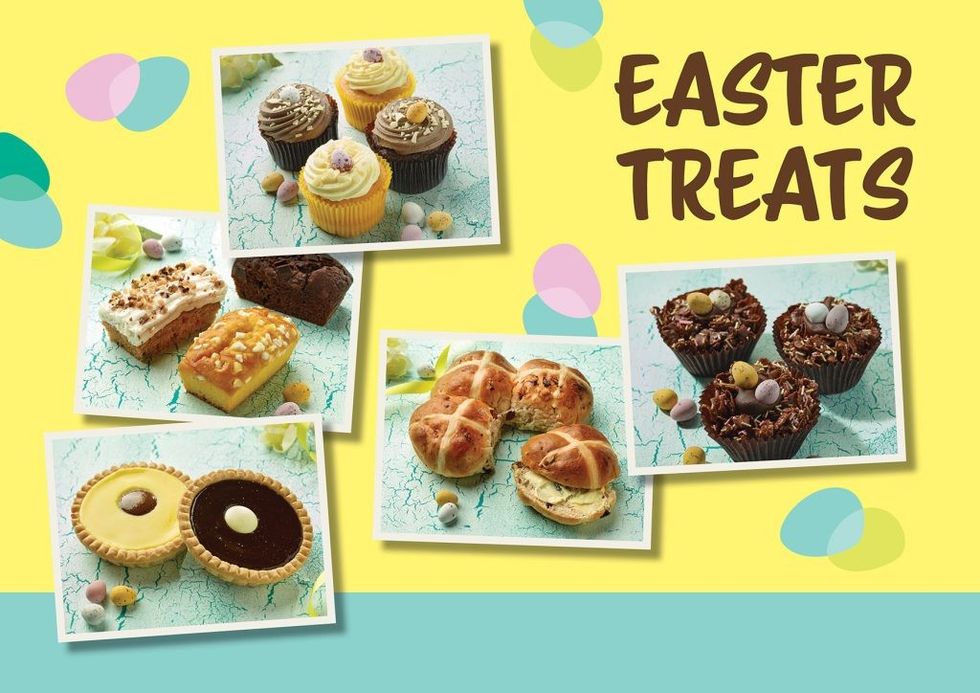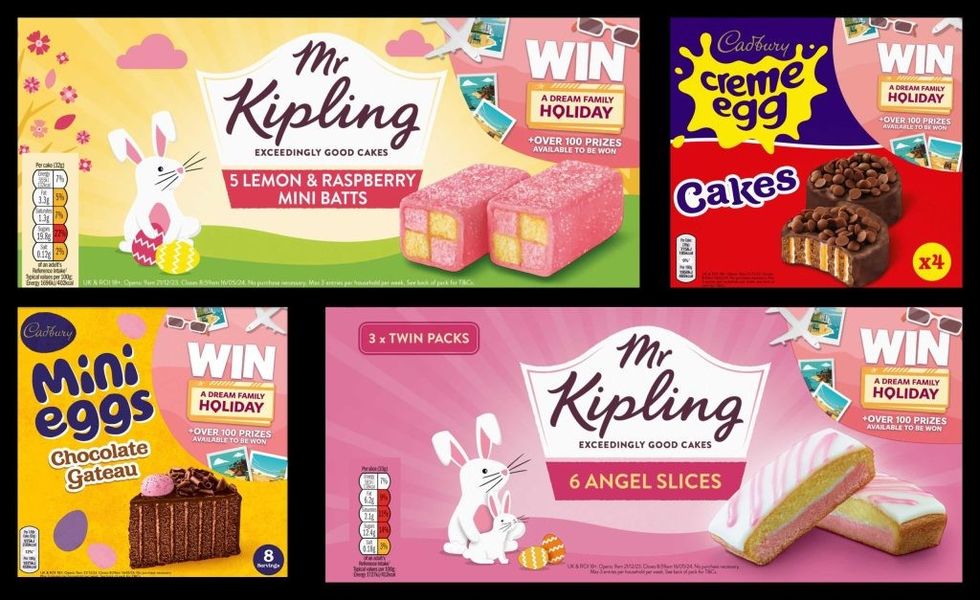Everybody is wondering how come Easter is so early this year – Sunday 31 March – when it was in mid-April last year and likewise in 2022.
The simple answer is that the date follows an ancient and established formula that few people are any longer aware of, namely that Easter typically falls on the first Sunday after the first full moon following the spring equinox.
The Spring equinox – the exact point when the Earth's axis and its orbit line up so that both hemispheres share an equal amount of sunlight – took place on early on 20 March (this very morning at the time of writing).
So the countdown begins: the next full moon is at the same hour on March 25 (a Monday) and hey presto! Easter is the following Sunday. It’s that unique line-up, that particular sequence of events, that determines when we celebrate Easter.
Why we celebrate Easter is another question. Obviously it is the major Christian event of the liturgical calendar – much more important than Christmas for religious people, although commercially the winter festival has usurped Easter in significance for decades (or even centuries) now.
Easter itself – just like Christmas – has developed as a “syncretic” occasion, meaning that its Christian significance was placed over an earlier, already existing pagan ritual, making it easier for Easter, like Christmas, to be accepted and embedded in the culture. Many pagan societies have a winter celebration, typically a festival of lights of some sort that stirs the spirits of the cold and hungry people and helps them to look forward to the renewal of life in the Spring.
Easter, likewise, represents the culmination of those hopes, and celebrates (even when it is early, like this year) not only the resurrection of a god – as with Jesus and those dying and arisen gods who were worshipped before him – but the fecund rebirth of the world itself, as flowers and buds appear and as lambs and of course bunny rabbits are born into the fresh spring of the unsullied year.
How we celebrate is another question. Some will go to church of course, and a few druids will foregather around woodland oaks at dawn no doubt. Most people, however, will mark the occasion by unwrapping chocolate eggs and related delicious sweet products, and will make Easter, alongside Christmas, the most important confectionery sales season of the year.
Which is where we come in.
Dark matter
Every independent retailer knows how to prepare for Easter, and 90 percent, perhaps even 95 per cent of that prep revolves around sourcing the right chocs and eggs to satisfy the shoppers who for a period allow themselves to indulge in a feast of confectionery resurrection.
It need not only be Easter eggs, important as they are. In the lead-up to Easter, which with certain skus (Creme Eggs, we are thinking of you) begins not long after New Year. There are Lindt chocolate bunnies which are another self-treating tradition in themselves, and increasingly other specially adapted brands of chocolate (and now thinking of you, Maltesers) who take on rabbity-form in new lines and skus designed to feed Easter-anticipation.
The Easter treats market has seen steady growth over the past several years, driven by consumers’ desire for seasonal indulgences and premium products. Total Easter sales including boxed confectionery reached an impressive £640 million CSV in 2023 [Nielsen], which not only underscores the economic significance of Easter but also highlights consumer enthusiasm – an enthusiasm that shows zero signs of waning, unlike that full moon.
“There are already 882 million treat reward servings per year, yet this sees a large uplift during the Easter period with the four weeks prior to 16 April 2023 being 23 per cent higher than March and 52 per cent higher than May,” confided Naomi Shooman, global marketing director for sweet treats at Premier Foods.
As choc sales clearly dip following Easter, as a nation shapes up for its svelte appearance on summer beaches, the opportunity to sell as much chocolate as possible right now should not be passed up.
For a full run-down of what to stock for best Easter sales see our Easter products feature from last month, Easter Treats: Fresh out of the egg – it will prepare you perfectly for egg success!
Since then, there are some important updates for Easter-related skus definitely worth looking at right now.
A delicious new product which will suit those whose tastes might be slightly more mature than just an M&M’s Egg is from Dark chocolate toffee brand Riesen, which is extending its range for the first time with the launch of a limited-edition espresso flavour. The Riesen Espresso flavour combines the rich taste of espresso coffee with delicious chocolate (it is, we’ve tried it!) and is in stores now.
“The UK is a nation of coffee lovers, with the coffee shop market growing by 7.3 per cent and 61 per cent of consumers now preferring it to tea,” said Andy Mutton, Managing Director at Storck UK. “Our new product caters to this growing demand and offers consumers that classic combination of chocolate and coffee in the form of an indulgent treat. We believe that the new flavour will be popular amongst the brand’s current loyal following as well as bringing in new shoppers by driving excitement in the category.”
Riesen is now worth £4.9 million in retail sales value and ranks as the sixth fastest growing brand in the sugar confectionery segment. As the number-one dark chocolate toffee brand, Riesen is well placed to tap into this flavour trend with its new limited-edition offering and drive growth in the category.
Dark chocolate is increasingly popular (we looked at this last year and concluded that the trend is only going to carry on as the palate of a maturing demographic looks toward darker, less sweet and more sophisticated forms of chocolate). Riesen Espresso is available in 135g sharing bags at MRSP £1.25.
Small is beautiful
You might have read about the spike in cocoa prices – higher than at any point since the 1970s, with implication not only for cost but the size of future eggs!
The cocoa crisis stems from West Africa, particularly Côte d’Ivoire and Ghana that produce 60 per cent of supply. A series of poor harvests in the region due to unusually heavy rains have hammered production.
This means the price of cocoa has risen by more than 40 per cent since the start of January and more than doubled since the start of 2023. A tonne of cocoa has now topped £4,355, breaking the last record high set in 1977. While already at a record high, experts believe the price of cocoa will keep rising.
The result will inevitably be higher prices. It comes at a time when chocolate has already been rapidly getting more expensive as energy and labour costs climb.
Apart from higher prices, manufacturers will increasingly resort to making their products smaller to cut costs, sparking another wave of so-called “shrinkflation”.
A spokesman for Cadbury owner Mondelēz said, “Looking ahead, given these challenges and specifically the rising cocoa prices, we may be required to make further, carefully considered changes within our UK portfolio.
“This could include different measures such as cost price increases or changing the unit weights of our products, but always as a last resort.”
Cadbury’s Dairy Milk bars shrunk by 10 per cent in 2022, while a “Big Share” bag of its Dairy Milk Buttons became 23 per cent smaller last year.
Nestle, which along with Cadbury and Mars makes up the big three chocolate producers in Britain, confirmed that it too may have to “make adjustments to the price or weight of some of our products” because of surging cocoa prices (although choccie shrinkflation was widely spotted as far back as 2017).
William Whitaker, managing director of Whitaker’s Chocolates, is hoping to find more creative solutions like making use of less chocolate and focusing more on other items such as fondant creams.
“If this trend continues, it isn’t going to be “I can have a bar a day, I can buy it whenever I like”, it is going to be like it was when I was a kid, which was an occasional treat,” The Telegraph quoted Paul A Young, a former chocolatier who now works as a consultant in the industry, as saying.
Cakes are Easterful, too
If chocolate looks like it’s getting pricey, remember also to tempt your customers with baked goods – cakes and biscuits. The Easter cake after all, has a pedigree stretching back much further into history than the chocolate egg.
Country Choice, for example, has revealed its Easter treats line-up for 2024, which also gives a great range of ideas for other cake, bread and biscuit skus for your shelves. Among the highlights of the Easter treats collection are:
- Hot Cross Buns: Indulge in the classic Easter tradition with these sweetly spiced buns, filled with sultanas, raisins, mixed peel, and adorned with a distinctive white flour cross.
- Cornflake Cake with Chocolate Eggs: Enjoy a delightful combination of crispy cornflake cake covered in a chocolate-flavoured coating, finished with chocolate eggs and sugar strands.
- Giant Lemon and Chocolate Bakewell-Style Tarts: A Lemon flavoured frangipane in a pastry shell topped with lemon fondant, and a chocolate sponge in a pastry shell topped with chocolate fondant and white chocolate decoration.
- Gingerbread Bear: Great for kids is the bear-shaped gingerbread biscuit, decorated with colourful sugar beans.
- Easter Cupcakes (Lemon and Chocolate): Treat customers to sponge cakes topped with lemon or chocolate icing, adorned with white chocolate shavings and a sugar-coated milk chocolate mini egg.
- Easter Chocolate Cake: A decadent chocolate cake featuring vanilla-flavoured crème cheese icing, chocolate coating, and sugar-coated chocolate mini eggs.
- Mini Loaf Cakes: Choose from a variety of flavours including Carrot, Double Chocolate, and Lemon Meringue, each individually wrapped for freshness and convenience.
In terms of promotions, Premier Foods brands Mr Kipling and Cadbury Cakes are launching an on-pack competition to give shoppers the opportunity to win adventures through their cake packs, including a dream family holiday for four people, days out and over 100 other prizes. The campaign is live now and runs until 16 May across all retail channels.
Premier Foods is determined to drive sales even further than last year's record Easter sales for retailers around this occasion with the Mr Kipling and Cadbury Cake Easter campaign.
“At Easter, consumers are more likely to be spending time with friends and family, so we’re expecting more shoppers to turn to the category for sweet treats to share with loved ones,” said Naomi Shooman, global marketing director for sweet treats at Premier Foods. “Our distinctive on-pack executions and in-store activity, makes the cake aisle an exciting destination to shop – especially when prizes are on offer. Our aim is therefore to disrupt and recruit shoppers into the cake category during the Easter period and excite them with the latest Mr Kipling and Cadbury campaign which could see them win the likes of a dream family holiday.”
The competition is running across some of Cadbury and Mr Kipling’s most popular Easter cake SKUs, including the Mr Kipling Lemon & Raspberry Mini Batts and the returning Mr Kipling Deliciously Good Hot Cross Pies. The competition is available across the grocery, wholesale and convenience channel from now until 16th May. The full terms & conditions can be found here.
Don’t forget the bunny!
Lastly, whatever you do, don’t forget that great egg alternative at Easter, the Lindt chocolate bunny.
Lindt has just unveiled a novel, irresistible addition to its Easter collection – the Gold Bunny Salted Caramel (and of course anew Lindt Gold Bunny Salted Caramel Easter Egg).
Salted Caramel is the runaway success taste variation for all kinds of confectionery and ice cream, and adding it to the instantly recognisable gold bunny from Switzerland (100g, RRP £4.00) is a taste treat that will encourage greater premium sales.
Asian Trader wishes you a happy sales Easter and a great springboard into the sunshine and barbecue season of 2024!






